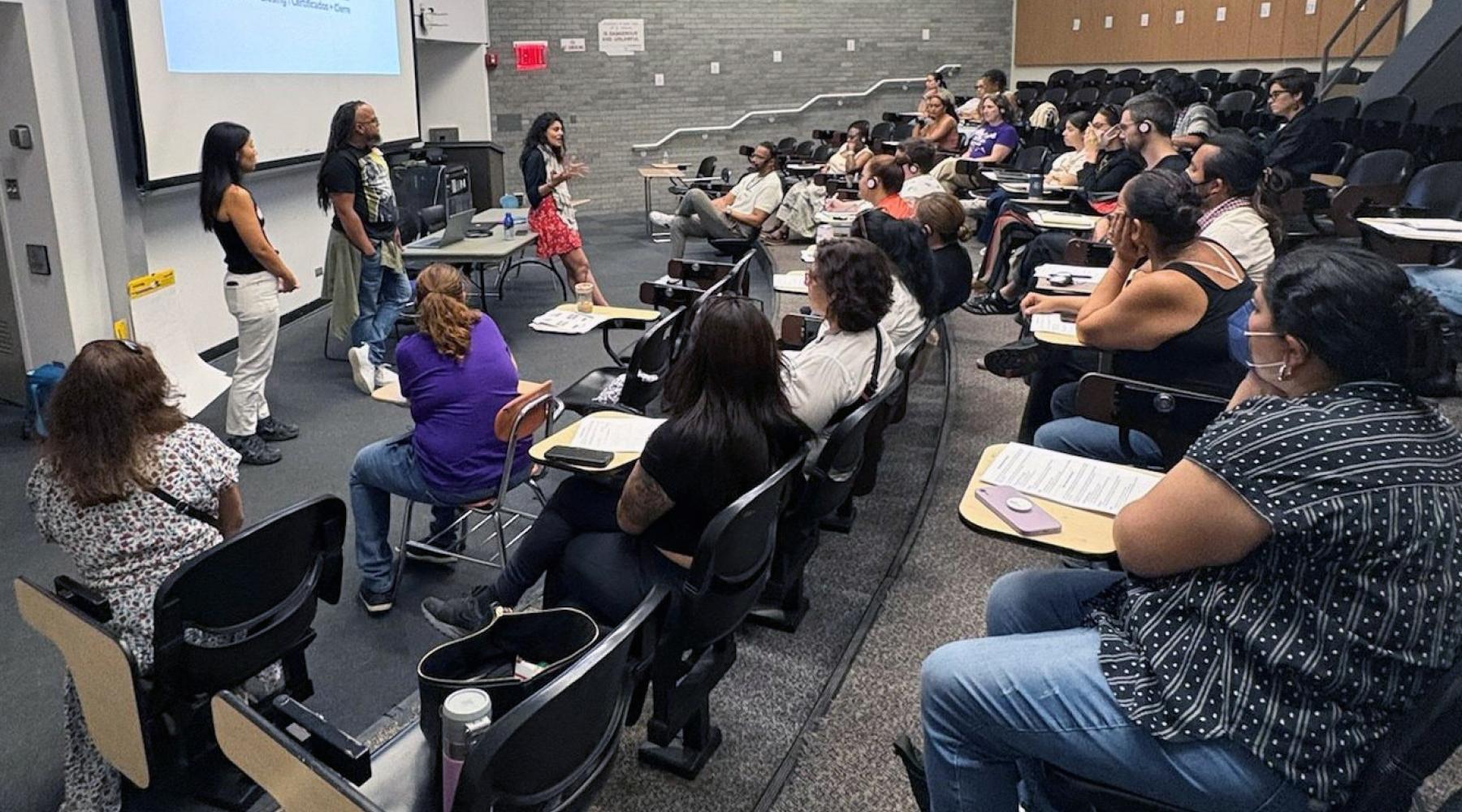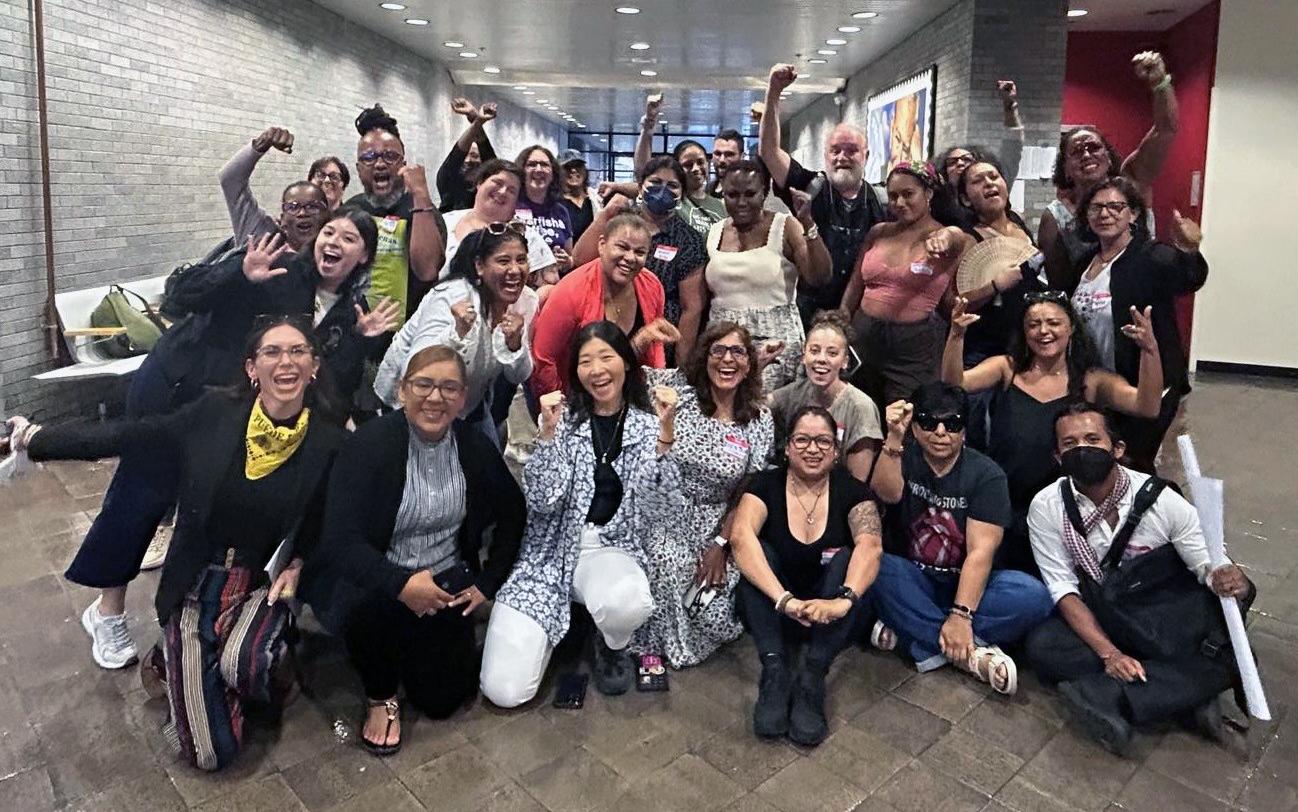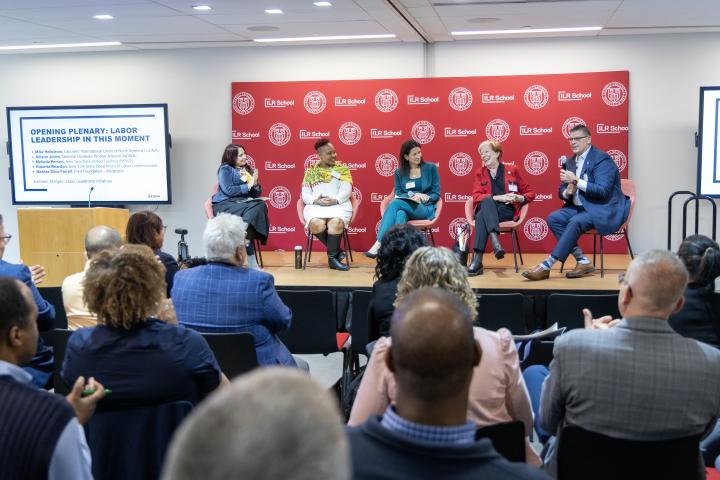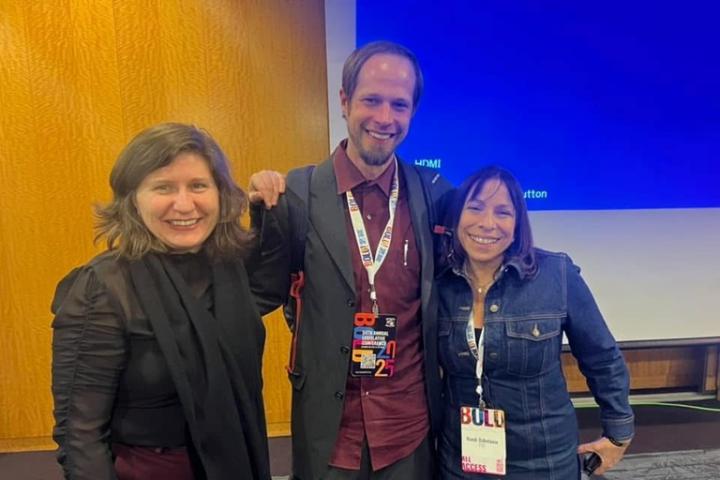
Bargaining in Times of Crisis
Labor has always stood up for all workers in times of crisis. But at this moment in our country’s history, our labor movement faces an unprecedented assault on its very foundation; the ability to represent and organize workers, defend all workers’ rights, citizens and non-citizens, in a free and independent society.
At stake is labor’s core purpose: to secure living wages, safe workplaces, health care, pensions, and dignity for all working people. The Trump administration’s announcement that it ended collective bargaining rights for over 1 million public sector workers, plus the firing of members of the National Labor Relations Board (NLRA), a core institution that secures labor law enforcement in the private sector, are direct attacks on labor unions by authoritarian forces that seek to weaken democracy in the workplace. Labor rights and the right to collective bargaining is a fundamental right in a free and democratic society, and when those fundamental rights are under attack, Democracy itself is under attack.
Despite the dire headlines of attacks on workers, another story is emerging; federal public sector workers are fighting back and resisting the termination of their collective bargaining agreements. Workers in places like Amazon and Trader Joes and unios like the UAW continue to demand recognition of their unions and their contracts.
As leaders we must draw from these examples and continue to grow our movement and defend Democracy at the workplace and in our society. In this spirit of solidarity and union power, more than forty (40) union and workers leaders from across NY came together this summer to build solidarity together; nurses and steelworkers, domestic workers and day laborers, street vendors and professional employees spent a day strategizing together how they will defend each other, their unions, workplaces and communities from the growing threat of authoritarianism disguised under the cover of national guard securing our cities and ICE raids terrorizing immigrant workers.
Sponsored by a coalition of civic leaders, and anchored by trainers at the Worker Institute, these leaders studied labor history to learn from the struggle of the past and develop a training-of-trainers, an effort to build the infrastructure the labor movement needs in this moment to defend our union’s right to organize. Grounded in American labor history, leaders debated new strategies, created innovative tools to train others, and strengthen their own pathways to grow their leadership; together we are learning how to defend collective bargaining in time of crisis.

During this one-day training, participants placed themselves in a 240+ year arc of struggle by the American people to build a country grounded on Democratic values and respect for the dignity of all people and religions. They connected with the story of their ancestors who stood up to build their unions, for Democracy and freedom so that they could live in an America that embraces diversity and justice. They explored where democracy stands today and practiced the strategies that has always build power for workers; solidarity and bargaining across difference and for mutual gain.
These strategies are essential for workers today to continue to purse collective bargaining rights during our current crisis of Democracy. “Bargaining In Times of Crisis” is a strategy that reminds us that at the core, our unions have always exercised power when we come together to defend people’s dignity.
That is the power of workers; we act to secure our rights even when the odds are against us. Our Bargaining in Time of Crisis training draws on our labor history, from social movement strategy, form our civil rights movement, and from workers resilience around the world to defend core democratic values and push away current threats of authoritarianism.
Labor’s fight has always been more than just individual gain; it has always been about the collective power of community. It is about securing the future dignity of our children, our families and our society.
If you want to learn more about our “Bargaining In Times of Crisis” curriculum, and to develop your own train-the-trainers program in your local union, call us at the Worker Institute and we will work with you to help you grow our internal capacity to build power in times of crisis.




